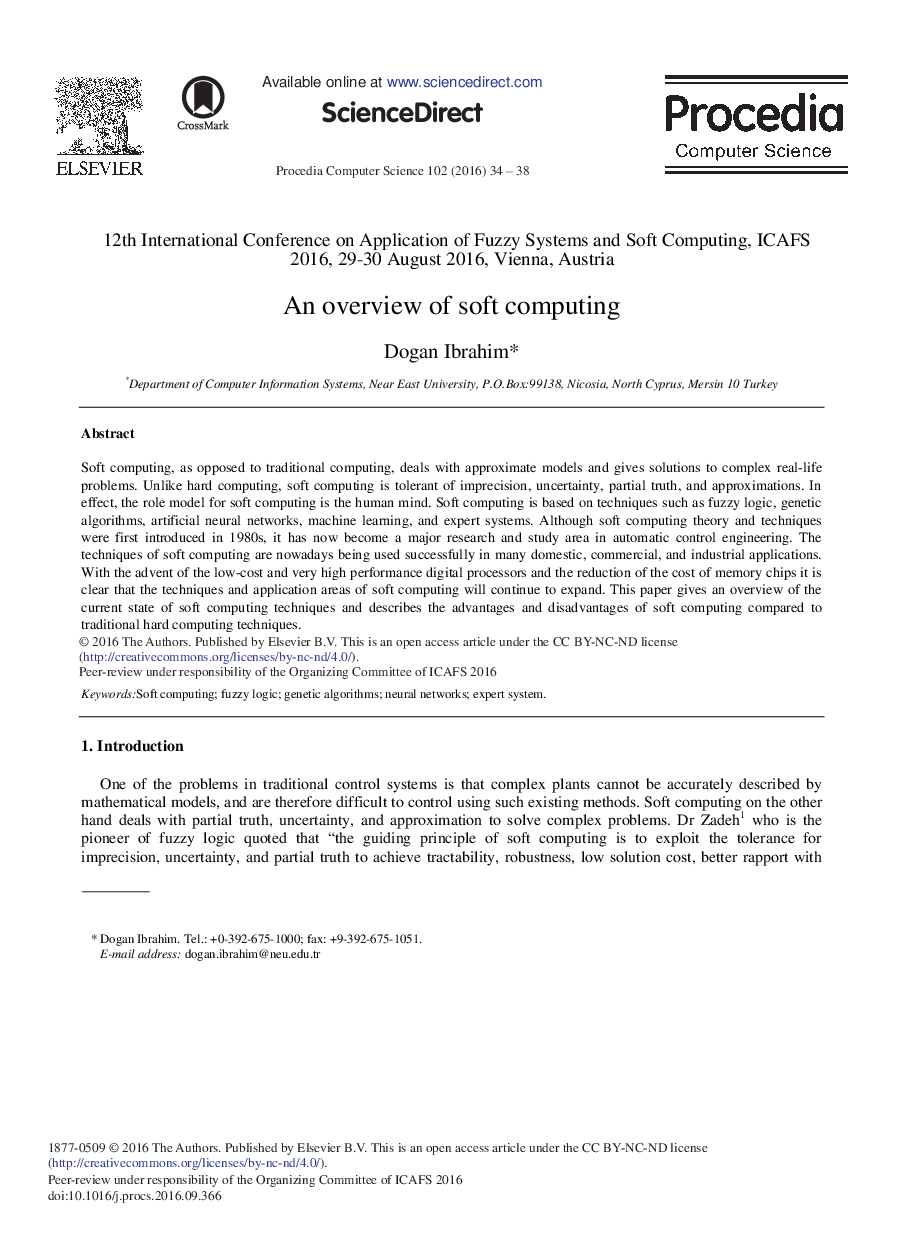| Article ID | Journal | Published Year | Pages | File Type |
|---|---|---|---|---|
| 4961602 | Procedia Computer Science | 2016 | 5 Pages |
Soft computing, as opposed to traditional computing, deals with approximate models and gives solutions to complex real-life problems. Unlike hard computing, soft computing is tolerant of imprecision, uncertainty, partial truth, and approximations. In effect, the role model for soft computing is the human mind. Soft computing is based on techniques such as fuzzy logic, genetic algorithms, artificial neural networks, machine learning, and expert systems. Although soft computing theory and techniques were first introduced in 1980s, it has now become a major research and study area in automatic control engineering. The techniques of soft computing are nowadays being used successfully in many domestic, commercial, and industrial applications. With the advent of the low-cost and very high performance digital processors and the reduction of the cost of memory chips it is clear that the techniques and application areas of soft computing will continue to expand. This paper gives an overview of the current state of soft computing techniques and describes the advantages and disadvantages of soft computing compared to traditional hard computing techniques.
